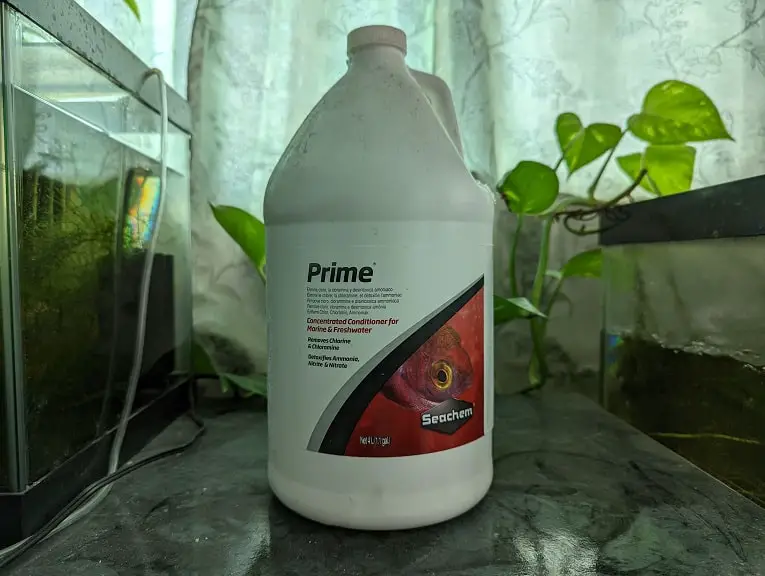Seachem Cupramine is used to treat several external parasites on your fish. So, is this solution safe to use with Seachem Prime?
You can find out in this guide from Aquarium Blueprints.
Can you use Seachem Prime and Seachem Cupramine at the same time?
You cannot use Seachem Prime and Seachem Cupramine at the same time as doing so will cause Cupramine to become very toxic.
It is very important to note that Seachem Cupramine will stay indefinitely in your fish tank even after the treatment period unless you remove it completely. So, even if you add Seachem Prime long after dosing Cupramine, you will end up harming your fish.

How to use Seachem Prime with Seachem Cupramine
With careful pre-planning, you can use Seachem Prime with Seachem Cupramine. In order to do so, we recommend that you take the following steps:
1. First off, we recommend that you do a big water change as you may not be able to safely do another one for the next several weeks.
For the water change, try to achieve the following parameters:
- 0 ppm of ammonia
- 0 ppm of nitrites
- Less than 20 ppm on nitrates (the lower concentration, the safer the tank water will be for your fish)
2. Before adding new tap water back in during the water change, add Prime directly into your fish tank. Follow the official dosage directions.
In most cases, you need to dose 5 mL for every 50 gallons or 200 liters in your aquarium.
3. After dosing the water change, wait for at least 48 hours.
4. After 48 hours have passed, turn off any UV filters or ozone filters. You should also remove any chemical filter media in your tank.
5. Next, dose Seachem Cupramine based on the official directions.
For freshwater, you should dose 0.5 mL for every 10.5 gallons or 40 liters.
For saltwater, you should dose 1 mL for every 10.5 gallons or 40 liters.
6. Wait another 48 hours.
7. After another 48 hours have passed, re-dose Seachem Cupramine at the same amount as before.
8. Wait for the next 14 days for Cupramine to treat your sick fish.
9. We don’t recommend doing any water changes at any point during these 14 days as doing so with Seachem Prime will make Cupramine toxic.
If you absolutely need to do a water change, then make sure you put the tap water in a water bucket or container first and then add Seachem Prime. You then need to wait 48 hours for Prime to dissipate before you can add new water to your fish tank.
Alternatively, you can also add distilled water instead of tap water as you don’t need to use Prime with distilled water.
Keep in mind that by doing a water change, you will also dilute the Cupramine in your aquarium, which means that you will need to carefully re-dose the solution.
To re-dose, you need to test the copper concentration in your fish tank beforehand by using a kit like the Seachem MultiTest Copper, which you can find on Amazon with this link. (#CommissionsEarned)
The copper level should be around 0.25 mg/L for freshwater or 0.5 mg/L for saltwater. Slowly add Cupramine and then re-test your tank water to get back to these concentration levels.
10. After two weeks have passed since the second dosage of Cupramine, you need to add carbon or another chemical filter media to your filter in order to completely remove copper from your tank water.
If you are looking for a specific chemical filter media for this purpose, then Seachem recommends the CupriSorb, which you can find on Amazon via this link. (#CommissionsEarned)
11. Next, you need to wait for at least one week and then test your kit for copper. If there are still traces of it left, then wait for a few more days to re-test.
You may also want to consider adding more chemical filter media.
12. Once the test kit shows that there is no more copper in your tank, we recommend waiting another week as an extra precaution.
13. After awaiting one week, you should now be able to safely use Seachem Prime without harming your fish and other aquatic pets.
